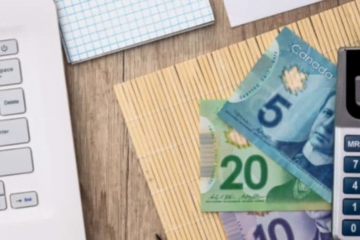Who should you consult with when you are looking for bankruptcy help?
Bankruptcy is a complicated legal process. If you’re planning on filing bankruptcy or considering it as an option for getting out of debt, you’ll need bankruptcy help. A Licensed Insolvency Trustee (LIT) is the only person you should turn to. That’s because Licensed Insolvency Trustees are the only professionals authorized to administer bankruptcies in Canada.
What is a Licensed Insolvency Trustee (LIT)?
A Licensed Insolvency Trustee is a financial professional licensed by the federal government to administer bankruptcies. LITs also provide financial counseling and are also the only professionals licensed to administer Consumer Proposals.
Licensed Insolvency Trustees are very knowledgeable in personal finance, debt management, and debt solutions. In addition to their degree and professional licensing requirements, they have a vast amount of experience dealing with a wide range of debt issues. Just as your situation is unique, so is the situation of nearly everyone they consult with. As well as this experience, LITs take ongoing training throughout the course of their careers, as part of their licensing requirements. You can be sure your LIT is up to date with all current legislation and court precedence in the debt field.
Because the government regulates trustees, they also follow a strict code of ethics. Their fees are regulated, so you know you will not be charged unfair or overly high fees.
How can a Licensed Insolvency Trustee help?
A few ways a LIT can provide bankruptcy help include:
- Answering your questions. During your initial consultation and throughout the bankruptcy, your LIT will be able to answer any questions you may have about bankruptcy. This can help you know what to expect from the process, as well as the impact declaring bankruptcy has on your credit and assets. Your trustee can even give you pointers on how to rebuild your credit record following your bankruptcy.
- Discussing alternatives. Even though a Licensed Insolvency Trustee is licensed to file bankruptcies and Consumer Proposals, they are required to inform you of all of your alternatives. A trustee will go over your financial situation with you and help you decide which option is best. It may be that a Consumer Proposal or credit counseling is a better solution for you.
- Providing protection from your creditors. A trustee provides protection from your creditors through the bankruptcy or Consumer Proposal that you file. These are the only two options that can legally prevent your creditors from contacting you or attempting to collect money from you. When you file for bankruptcy, your trustee informs your creditors that you are bankrupt. By law, they are no longer allowed to contact you. If your wages are being garnished, that also stops. Judgment liens are also removed from your assets.
Duties of a LIT when administering a bankruptcy
Some of the trustee’s duties during a bankruptcy include:
- Providing an initial assessment of your situation, and explaining the full range of options for solving your financial problems
- Explaining to you the duties of a person in bankruptcy
- Filing bankruptcy papers with the federal government
- Notifying your creditors of the bankruptcy, and receiving and validating claims from the creditors
- Sending a “Stay of Proceedings” to any creditors who are suing you or garnishing your wages, thus stopping further collection.
- Providing the two required financial counseling sessions, and materials to assist you in the development of good money management skills
- Reviewing your assets and determining if they are exempt from seizure in the bankruptcy (most assets are exempt)
- Liquidating any assets that are not exempt, so that the funds can be used to repay creditors
- Explaining the Superintendent’s Guidelines to you and determining if you have an “ability to pay” according to those guidelines. (The government estimates how much it costs a family of a given size to live in Canada. If you have income over that amount, you are required to pay 50% of the excess — the amount over the guideline — to the Trustee for the benefit of your creditors)
- Filing your tax return for the year of bankruptcy in two parts, a pre-bankruptcy return, and a post-bankruptcy return
- Distributing any money from payments you have made, or assets that were liquidated, to creditors at the end of the bankruptcy
How can I find a Licensed Insolvency Trustee?
All LITs provide free consultations, and you are not obligated to make any decisions during your initial consultation. You are also free to visit a number of LITs for a second opinion. It is important that you feel comfortable with the Trustee that you will be working with.
Your LIT can provide the most help if you come prepared for your initial consultation. They will need to know how much debt you have (both secured and unsecured), whether or not you are employed, your income, your family size and household expenses, and what assets you have, including whether or not you have equity in your home. The more complete information the Trustee gets from you in that initial meeting, the more comprehensive their advice can be on the options that might work for you.
If you need bankruptcy help in Winnipeg, there is no better place to go for advice than the people who handle bankruptcies. LCTaylor, Licensed Insolvency Trustees, offers an extensive consultation to review your finances and help you make an informed decision about bankruptcy. Contact us for a free consultation to see how we can help you get out of debt.

















